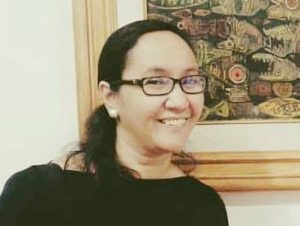 NOTHING can be completely done without them.
NOTHING can be completely done without them.
Differently abled persons have an important part and could greatly contribute to the community, if only we learn to be more sensitive and respectful of their capabilities. Beyond being the object of pity, they have far more shown the ability to create and contribute to the community.
Their inclusion, however, remains to be a challenge in the mainstream as employment opportunities are usually prejudiced against them and provisions are nil to respond to their special needs. Too often, they are forced into jobs which offer low pay and with little prospect for growth and promotion.
Differently abled persons are not only handicapped by the physical and social barriers, they often lack access to basic services. Among our own neighborhood, families whose members have their own special needs are often confronted with the cost of managing and of undertaking rehabilitation initiatives themselves. While some have the resources to see it through and assist their child to fully develop and be productive, it is not the same for the larger number of population which remains unable to move past the barriers.
Despite pronouncements on equal rights and passage of the Magna Carta, there remain significant challenges in the access to education, employment, and even housing. Except perhaps for Davao City and other cities in the region which has assisted the differently abled persons not only in terms of technical and entrepreneurial skills, but also provided policy support for them to develop and even put in place their own space for employment and housing, other municipalities are not on the same track in terms of providing for the rehabilitation, development and provision of opportunities towards self-reliance of persons with disabilities (PWDs) and their integration into the mainstream.
There are unique physical, social, economic and legal circumstances of people with disabilities, and in particular, the common barriers to the enjoyment of their basic human rights such as the right to education, employment, health care, housing, and the like remains.
Social investment on the inclusion of the differently abled persons has yet to be fully tapped, as many of the institutions tasked to oversee the protection and equal access of Persons with Disabilities to their basic rights and entitlements are under-resourced and often lack a critical disability right and human rights perspective.
Differently abled persons cannot remain in the shadows. Any framework for development has to steer clear from treating them as objects of charity and as beneficiaries but to a more respectful lens of taking them as an active partner in development. The emphasis on abilities rather than disabilities remains to be the inclusive approach to promote the rights of PWDs.
Republic Act No. 10524 – An Act Expanding the Positions Reserved for Persons with Disability, which states that “no person with disability shall be denied access to opportunities for suitable employment,” and that at least one percent of all positions in all government agencies, offices or corporations shall be reserved for persons with disability.
The human resource departments are encouraged to integrate differently abled individuals in the workforce. Private corporations with more than 100 employees are also encouraged to reserve at least one percent of all positions for PWDs. A qualified employee with a disability shall be subject to the same terms and conditions as a qualified able-bodied person.
This requires a shift in how human resource practitioners and organizations could play a more significant part in upholding the rights of persons with disability. The partnership of the private sector and the leadership of local government units play a large part in making this initiative a reality. (First of three parts) Email comments to roledan@gmail.com

